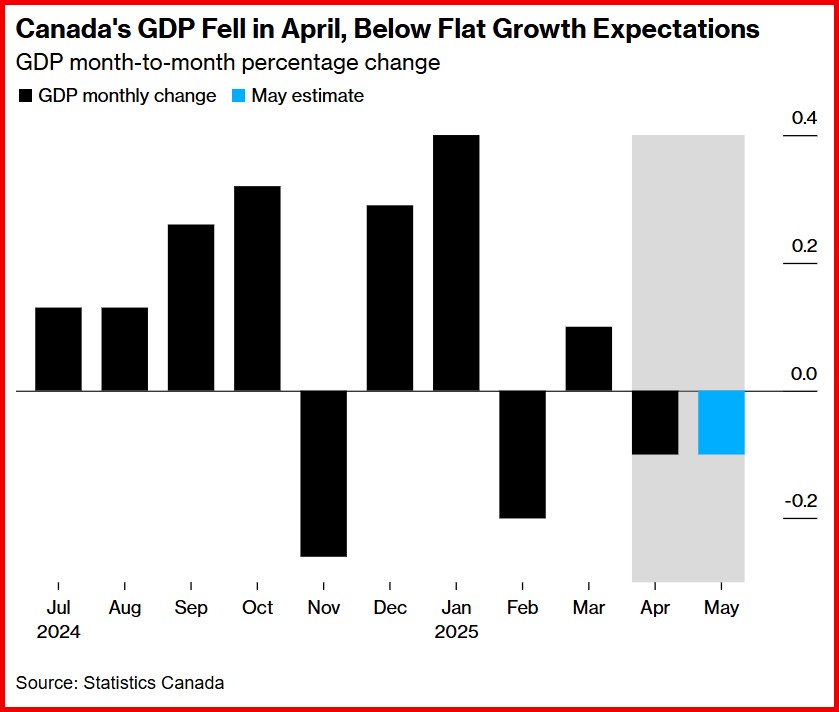Blog
Clear • Secure • Tailored Mortgage Solutions
Canadian GDP is Set To Contract In Q2 - June 27 2025
June 27, 2025 | Posted by: Matthew J. Charlton
Canada Is Headed For A Moderate Economic Contraction in Q2
Real gross domestic product (GDP) edged down 0.1% in April, following a 0.2% increase in March. The preliminary estimate for May was also -0.1%.
April and May were months of the most significant tariff uncertainty--both auto, steel, and aluminum tariffs were announced during this period. The 0.1% drawdown in April GDP had a wide variety of special factors at play in that month of high drama. The biggest drag by far was a steep 1.9% fall in manufacturing, including a 5.2% drop in the auto sector, as firms dealt with the initial wave of tariffs, as well as some further pullback after earlier tariff front-running.
Tariff front-running led to a surge in US imports in the first quarter. Revisions to the Q1 data in the States now show a 0.5% contraction, worse than initially reported.
Other trade-related sectors were soft, with wholesale trade down 1.9% and transportation & warehousing off 0.2%. Providing some offset was the Federal election in the month, which boosted federal public administration 2.8% m/m. StatCan notes that the start of the NHL playoffs, with five Canadian teams in the mix (more than usual), boosted the arts and entertainment sector by 2.8%. Hotels and restaurants also firmed (+0.6%), potentially supported by Canadians vacationing closer to home, and the NHL playoffs may have also contributed to the increase. Were it not for the election boost and entertainment, real GDP would have been down 0.2% in April.
May's expected drop was due, in part, to the reversal of the election bump in public administration spending, as well as softness in the resource sector and retail trade. Notably, StatCan did not mention manufacturing as a source of weakness. Still, earlier this week, it reported a 1.3% drop in May factory sales and a 0.4% decline in wholesale in flash reports, which no doubt also weighed.
Bottom Line
Chair Jay Powell told Congress this week that he expects inflation to pick up in June, July and August as tariffs become increasingly reflected in consumer prices. However, he added that if that prediction fails to materialize, the US central bank could resume interest-rate reductions sooner rather than later.
Weaker consumer and business spending, along with modest inflation, bode well for another rate cut by the Bank of Canada as well. There is another whole month of data before the BoC meets again on July 30. Many economists now believe the Bank's rate-cutting cycle is over. I'm not convinced.

Please note: The source of this article is from Sherry Cooper.






























